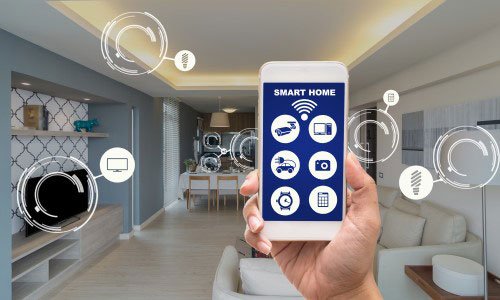Amazon, Apple, Google and ZigBee cooperate in the field of smart homes
Choosing a smart home device to buy can be a headache. You need to know which platforms are supported by the device (Alexa, Google Assistant, ZigBee, etc.). Their production is equally complex. Now, the alliance of Amazon, Apple, Google and ZigBee is promising to offer a solution to this problem: It's working together! These companies have formed a joint collaboration group called Project Connected Home over IP to create a standard for connecting all devices.
The less time it takes to develop, the better the compatibility

Right now, smart home appliance manufacturers have to make a choice. What platforms will be supported? Implementing Alexa or Google Assistant? Has HomeKit been implemented? You might wonder why not do all of this? But each new platform will increase development costs and create more potential security holes.
When looking to buy a smart lamp, you may come across a product that looks great, but only supports Alexa or Google, not both. That is too bad.
The new collaborative group plans to implement a new, unopened, open source standard to increase compatibility between platforms and devices. This is good news for both smarthome device manufacturers and consumers.
If all goes well, manufacturers will be able to implement standards and provide immediate support for Alexa, Google, ZigBee, Siri, etc. Other smart home appliance manufacturers, such as IKEA, Samsung SmartThings and Signify (the company behind Philips Hue), are also joining the group.
That means less confusion when you buy smart home devices. You don't need to worry much about whether your device supports your platform or not. Smart home devices that comply with this standard will support multiple platforms (Z-Wave is the biggest flaw).
A familiar topic

As the partnership group name suggests, the new standard will use Internet Protocol (IP) to bridge the gap between different platforms. Most consumers already have indoor WiFi routers, so in some ways it will become the new 'hub'.
By moving away from proprietary protocols and towards IP, the goal is to eliminate the difference and use an established communication method with integrated security. The goal is very similar to what Thread Group is trying to accomplish. Both aim to use IP as the primary means of communication.
Using only one control standard will increase security in many aspects. This standard can not only rely on long-standing security protocols, implemented in IP, but also help overcome many overall problems.
Do not rejoice too soon!

Even so, do not get too excited. This cannot happen overnight. The new cooperation is notified. New standards do not yet exist. Collaborative groups may disintegrate or change direction completely.
Even if Project Connected Home over IP succeeds in creating and releasing a great standard, perfect in every way, there is no guarantee that it will apply. Only time can give an accurate answer. But bringing together a number of competing companies into a unified bloc is also a remarkable step forward for a brighter future.